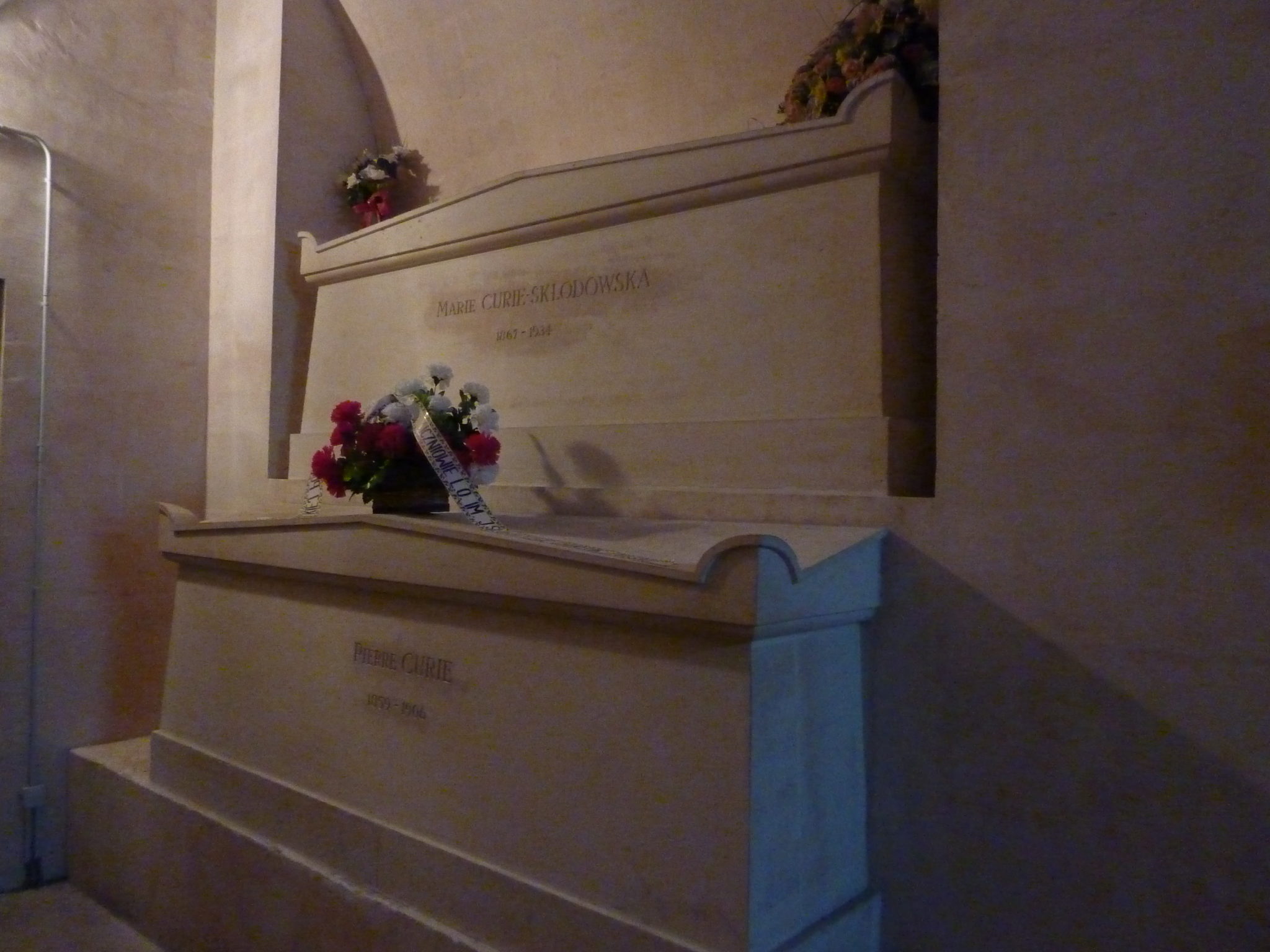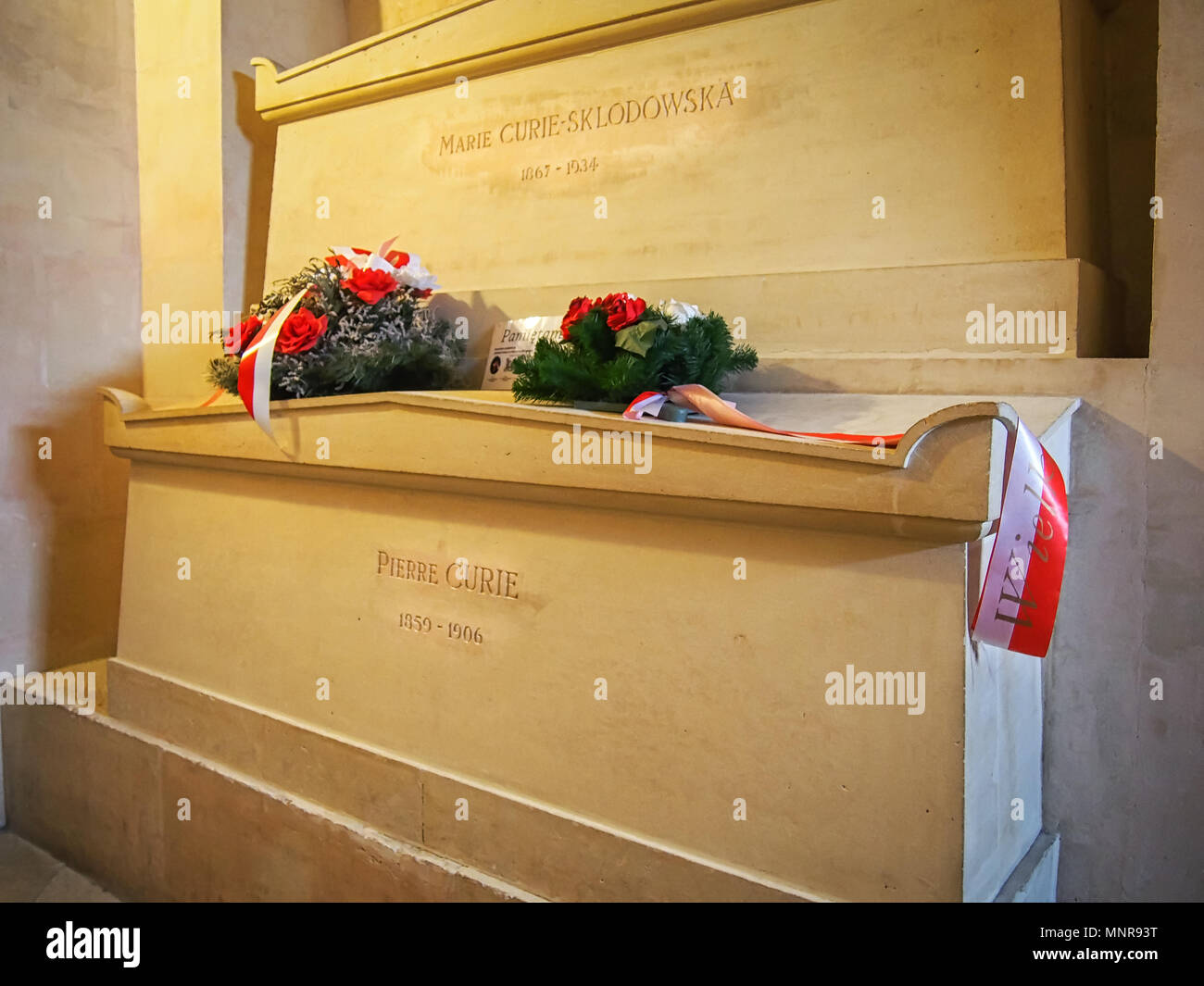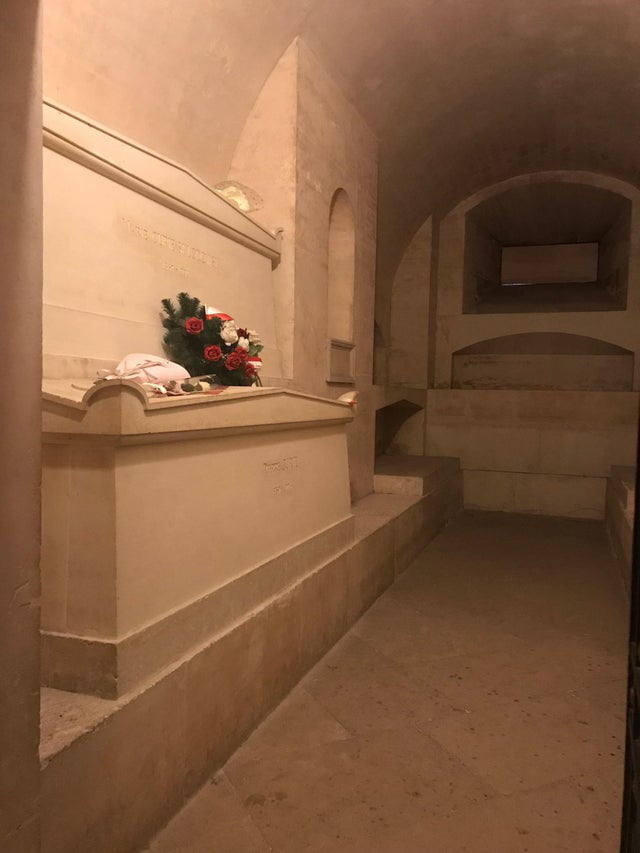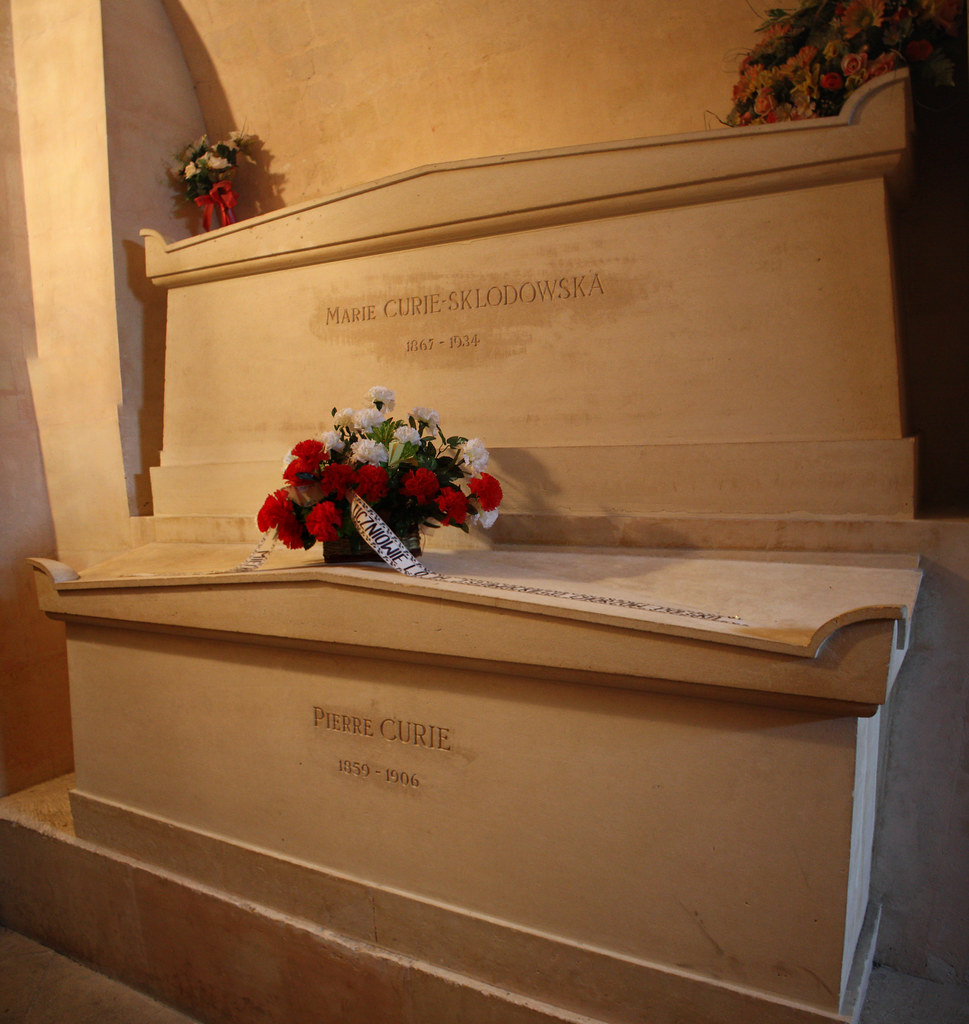
Marie CURIE Pierre CURIE au Panthéon Marie Curie, Flat Screen, Famous
Marie Curie works in her laboratory. Credit: Radium Institute, courtesy AIP Emilio Segrè Visual Archives. On 1 November 1929, Marie Curie spent her evening at the Plaza Hotel in New York. In her only public appearance in the city, she was scheduled as the guest of honor to address the third annual dinner of the American Society for.

La vita di Maria Curie a Varsavia Roberto Poeti Chimica
On 4 July 1934, at the Sancellemoz Sanatorium in Passy, France at the age of 66, Marie Curie died. The cause of her death was given as aplastic pernicious anaemia, a condition she developed after years of exposure to radiation through her work. She left two daughters, Irene (born 1898) and Eve (born 1904).

tombeau de Marie Curiepanthéon( 18671934 ) découverte du radium et
Marie Curie is arguably the most famous female scientist in history. She won the Nobel Prize in 1903 and 1911, and is the only person to have won a Nobel Prize for both physics and chemistry.

Marie Curie e Pierre Curie tomba nella cripta del Pantheon a Parigi
Her Passing. Image Credit: Canva. Marie Curie died from aplastic anemia on July 4, 1934, a condition believed to have been contracted from her prolonged exposure to high levels of ionizing radiation during her extensive work with radioactive materials. The damaging effects of ionizing radiation were not well understood during her lifetime, and.

150 años del nacimiento de Marie Curie Carrusel de las Artes
Marie Curie was a native of Poland, where she was born Marie Sklodowska in Warsaw in 1867, and President Lech Walesa of Poland joined Mr. Mitterrand at the ceremony today. During her heyday, Marie.

Legendary scientist Marie Curie’s tomb in the Panthéon in Paris. Her
Published: November 30, 2021 8:21am EST X (Twitter) LinkedIn Josephine Baker - performer, Resistance hero, and civil rights activist - is the first woman of colour to enter the Panthéon in Paris,.

Anybody know who's buried at the Pantheon? Two Small Potatoes
From left, Marie Meloney, Florence Harding, Marie Curie, Warren Harding, and Irène Curie at the White House, May 20, 1921. Marie Meloney wasn't used to feeling nervous. She'd started reporting for the Washington Post at age 17 and was the first woman to win a seat in the U.S. Senate press gallery. By May 1920 she was editing a popular.

tombeau de Marie Curie et Pierre Curiephysicienschimiste français
See the tombs of Victor Hugo, Marie Curie, Dumas, Voltaire, and Rousseau - YouTube In the Latin Quarter in Paris, stands the Panthéon. Today the Panthéon functions as a secular mausoleum.
European Adventure A New Year, a New Day in Paris
Marie Curie died on July 4, 1934, from aplastic anemia caused by her work with radiation. Despite its name, aplastic anemia is more than just anemia; it is a rare blood condition that appears.

Marie Skłodowska Curie. Nobel per la Chimica
Marie Curie was a brilliant scientist who helped expand our knowledge of radioactivity. Since she and her husband Pierre were still trying to understand radioactivity, they didn't take the same precautions used today. So when Curie died, her body, still riddled with radioactive atoms, had to be buried safely.

Panthéon Crypte tombe de Marie Curie Tineke Franssen Flickr
Quick Facts July 4, 1934 Paris, France Cemetery Name: The Pantheon Born Marie Sklodowska in Warsaw in 1867 (then part of the Russian Empire), as a woman she was denied an education under Russian control. To pursue a scientific education, Curie traveled to France, enrolling at the University of Paris in 1891.

Tombs of Marie and Pierre Curie, Paris Pantheon 1280x1707
Marie Curie's Notebooks. By Doctor Y — January 3, 2022. Marie Curie died of aplastic anemia, a disease brought on, in her case, by exposure to a large amount of radiation from both her laboratory work and from her work running field x-ray machines during the First World War. There was no surprise there, given the little known about.

150 años del nacimiento de Marie Curie Carrusel de las Artes
Marie Curie was the first woman to be interred at the Panthéon based on her own merits.

The Panthéon of France Info, history, photos, tickets and what to see
Amanda Macias/Business Insider This article was originally published by Business Insider. Marie Curie, known as the 'mother of modern physics', died from aplastic anaemia, a rare condition linked to high levels of exposure to her famed discoveries, the radioactive elements polonium and radium.

La Tomba Di Marie Laveau Nella St Louis Cemetery No 1 A New Orleans, La
Marie Curie (born November 7, 1867, Warsaw, Congress Kingdom of Poland, Russian Empire—died July 4, 1934, near Sallanches, France) Polish-born French physicist, famous for her work on radioactivity and twice a winner of the Nobel Prize. With Henri Becquerel and her husband, Pierre Curie, she was awarded the 1903 Nobel Prize for Physics.

Pierre And Marie Curie Tomb Iain McLauchlan Flickr
Domagoj Valjak is one of the authors writing for The Vintage News « Poe Toaster: For 75 years a mysterious man visited Edgar Allan Poe's grave, poured himself a glass of cognac, and toasted the great writer Bluetooth technology is named after Harald Bluetooth, a Viking king who died over 1,000 years ago »